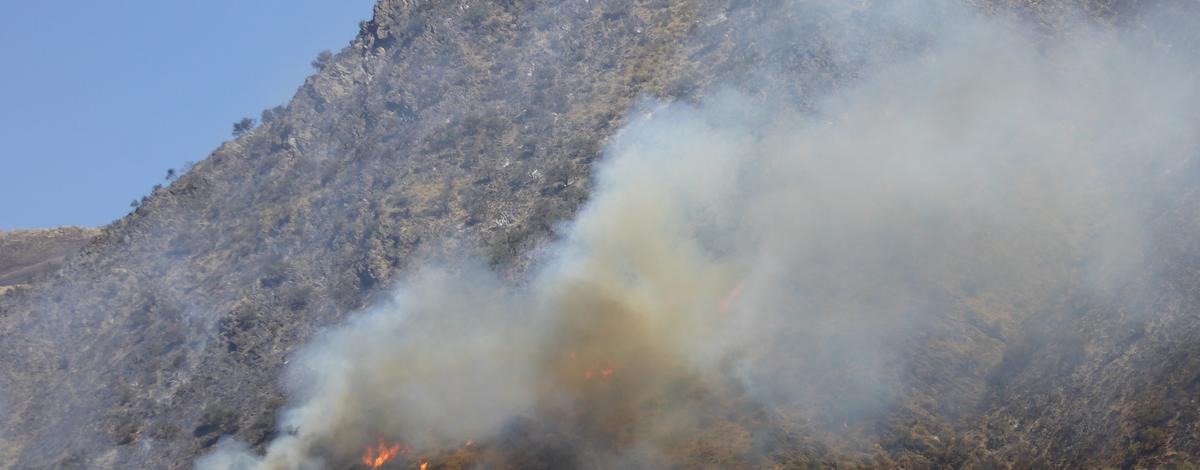Idaho’s early hunting seasons often coincide with fire season, and hunters should consider that when planning trips. If they’re traveling to their favorite hunting spots, it’s important to stay informed about current fire conditions, fire restrictions and rehab work on recent or past fires that can affect their hunts.
Fish and Game’s fire page can be a good place to start.
You can get more details about active fires in Idaho, on the InciWeb incident information site.
Here are some other tips for hunters during fire season:
Plan ahead
Check your hunting area in advance and see if there are fire closures or access restrictions due to fire danger. (The first is where wildfires are happening; the second is where land managers restrict access to prevent fires.) You may have to delay your hunt or switch to a different spot.
Be on the lookout for fires
If you spot a wildfire, report it immediately by calling 911. Hunters may want to carry a shovel and water jug in their vehicles to put out any campfires they see unattended.
Stay away from fire-fighting activities and abide by closures
Sometimes area closures seem to extend far beyond the actual fire, and hunters may be tempted to sneak into their favorite spot, but it is illegal to enter a closed area, and fires can move fast when conditions are right.
Be patient
Most fires are typically extinguished or under control by fall hunts. If you know fires are burning in your hunting area, you may want to delay your hunts, or choose another area. Land managers typically do their best to reopen public land for hunting season, but sometimes they can't.
There can be closures even when the fires are out
Land managers are cautious with newly burned areas and may keep some access restrictions in place.
Be careful with all fires
Whether a campfire, gas lantern, cook stove, barbecue, etc., all can quickly start fires in tinder-dry forests and deserts. Know the fire restrictions for the area you're hunting and abide by them. Even after rain or snow, forests can still remain dry and flammable.
Be careful with vehicles and motorized equipment
Parking vehicles on dry grass can ignite fires. Chainsaws, generators and other gas-powered machines can also start fires. Use them wisely and within the rules of fire restrictions.
Understand fires aren't all bad
Fires can have tragic consequences, as we have seen with lost lives, burned homes and disrupted lives and livelihoods. But fires can also improve wildlife habitat, and in most wildlands, fires are part of the natural cycle.
Prescribed fires can also be used to enhance wildlife habitat, and you can learn more about efforts to improve elk habitat in the Clearwater in this video series.

